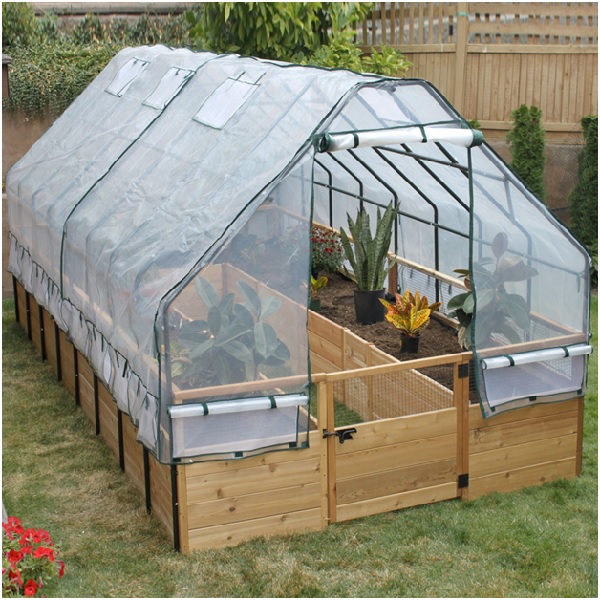Every plant needs a favorable environment to grow and thrive—this includes suitable soil, adequate light and humidity, and proper irrigation. Greenhouses are essential structures that help create optimal conditions for plant growth, especially during the cold seasons.
The type of greenhouse and the material used for its covering play a significant role in creating favorable conditions and determining the final product quality. Among these, the plastic layer used to retain heat within the greenhouse is especially important—something we’ll explore in this article from Keyhan Plastic.
Plastic Covering in Greenhouses
Among the various greenhouse coverings such as plastic, glass, and others, plastic coverings are the most widely used due to their many advantages. Typically, plastic layers used in greenhouses are made from materials like polyester, polyethylene, polyvinyl fluoride, and polyvinyl chloride. These materials offer excellent resistance to UV rays, superior durability, and long life spans.
A good greenhouse covering should allow sufficient light and heat to reach the plants while minimizing energy loss. It should also protect the greenhouse from changing weather conditions such as humidity fluctuations, temperature changes, and precipitation. Cost-effectiveness is another vital factor. Since plastic coverings offer more benefits than glass, many growers prefer them. In fact, plastic films are very effective in trapping heat and keeping greenhouses warm.
Today, a large number of greenhouses around the world are built with plastic coverings. Among these, polyethylene is the most commonly used material. Polyethylene greenhouses, often reinforced with UV-resistant additives, are durable and can last up to three years. Modern greenhouses typically use a double-layer polyethylene structure, with the inner layer being thinner than the outer one.
The Role of Plastic Layers in Heat Retention
One natural method to keep greenhouses warm is the double-layer plastic technique. This method helps preserve internal warmth and significantly reduces energy consumption. It’s important to choose thin plastic sheets for this method to allow airflow and effective thermal energy transfer within the greenhouse.
How Plastic Layers Help Maintain Heat
Now that we’ve discussed the importance of plastic layers, let’s explore how they function to keep greenhouses warm.
Modern greenhouses often rely on advanced devices for heating. However, studies show that excessive exposure to artificial heat can negatively affect the quality of some plants. Using plastic layers as part of a double-layer system helps control and distribute this heat more evenly.
Here are some ways plastic layers complement greenhouse heating systems:
Underfloor Heating
This modern method uses heated pipes beneath the floor to distribute warmth evenly. When combined with plastic double-layering, it improves energy efficiency across the entire structure.
Heater Use
Adding an extra plastic layer can reduce or even eliminate the need for multiple heaters. This not only cuts costs but also optimizes energy usage.
Convection Heating
This method sometimes leads to uneven heat distribution. Using a double plastic layer helps resolve this issue affordably and efficiently.
Steam Heating
Although effective, steam systems are costly to maintain. An added plastic layer reduces energy consumption, enhancing long-term efficiency.
Benefits of Plastic Layers in Greenhouse Heating
Using a plastic layer to create a double-cover greenhouse offers many benefits. Chief among them are reduced reliance on heating devices, lower energy and fossil fuel consumption, and significant cost savings. It also minimizes energy loss and supports sustainable farming.
Conclusion
As discussed, in addition to using advanced heating systems, applying a plastic layer and adopting a double-cover method can effectively retain greenhouse warmth. This approach not only preserves natural heat but also reduces energy consumption and overall costs. Investing in greenhouse plastic films is a smart step toward more efficient and sustainable cultivation. Visit Keyhan Plastic for more details.

